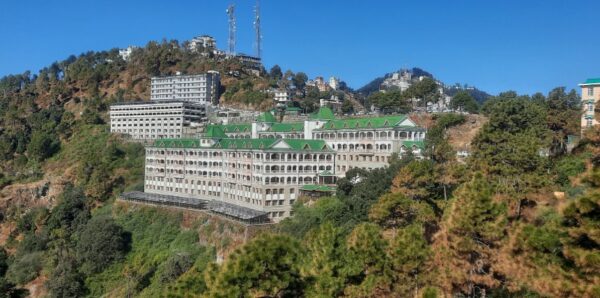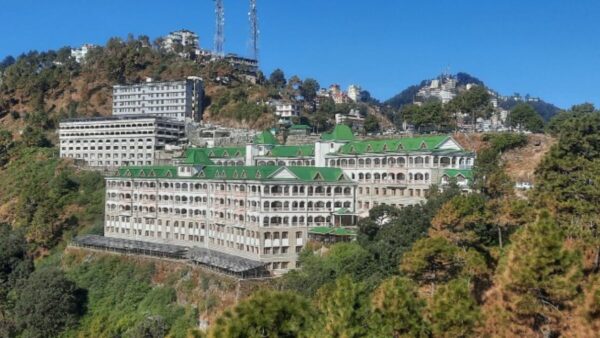Himachal Pradesh News
Shimla District Court Upholds Demolition Order of Illegal Floors in Sanjauli Mosque
Legal and Social Ramifications as Court Verdict Confirms Shimla Municipal Corporation’s Order

Shimla, December 30: In a landmark ruling, the Shimla District Court has upheld the decision of the Shimla Municipal Corporation Commissioner to demolish three illegal floors built within the Sanjauli Mosque. The court dismissed a petition filed by the Muslim Welfare Society, which sought to challenge the demolition order, marking a significant setback for the mosque committee.
Background: Allegations of Unauthorised Construction in Sanjauli Mosque
The Sanjauli Mosque, a prominent religious site in Shimla, has been embroiled in controversy over its construction activities. It was alleged that the mosque had added three extra floors without obtaining the necessary permissions or clearances from the authorities. The Shimla Municipal Corporation, following an inspection, deemed these additional floors to be illegal and issued an order for their demolition. As part of compliance with this directive, the mosque committee has already removed the attic structure, but the remaining floors are still under scrutiny.
Legal Challenge: The Petition and Court’s Scrutiny of Mosque Committee’s Authority
The Muslim Welfare Society, representing the interests of the mosque, approached the Shimla District Court, contesting the demolition order. Their petition included a challenge to the legitimacy of the Mosque Committee’s chairman, Mohammad Latif, and questioned whether the committee had the authority to execute the demolition. The court had previously requested the Waqf Board to clarify the status of Latif’s leadership, which they confirmed through an affidavit, stating that he had been serving as chairman since 2006.
Despite the challenge, the court sided with the Shimla Municipal Corporation, rejecting the petition and reaffirming the validity of the demolition order. The District Court’s ruling is seen as a legal affirmation of the local government’s stance on unauthorized constructions.
Mosque Committee Responds: Challenges in Ongoing Demolition Efforts
Following the court’s ruling, Mohammad Latif, Chairman of the Mosque Committee, confirmed that the demolition of one floor had been completed as per the Municipal Corporation’s orders. However, due to a shortage of laborers during the winter months, the committee has been unable to continue the demolition work. Latif stated that demolition would resume once labor forces return in the spring, with plans to complete the process by March 2024.
Join our WhatsApp channel for the latest news of Himachal
October 5 Order and Immediate Consequences
The issue first came to a head on October 5, when Bhupendra Atri, the Municipal Corporation Commissioner, officially declared three floors of the Sanjauli Mosque to be illegal. This decision prompted the mosque committee to begin dismantling the unauthorized parts of the building, starting with the roof. While the demolition was initially underway, logistical and seasonal challenges have caused a temporary halt to the work.
Social Unrest: Protests and Tensions Around the Sanjauli Mosque
The controversy surrounding the Sanjauli Mosque’s illegal construction ignited significant social tensions, particularly among local Hindu communities. Protests escalated in September, with demonstrators staging a violent rally outside the mosque. The situation turned confrontational when protesters breached barricades and neared the mosque’s site. This led to a clash with the police, resulting in injuries to both protestors and officers. The incident highlighted the heightened emotions and divisions within the local community regarding the mosque’s construction.
Moving Forward: Legal Precedents and Public Reactions
The District Court’s ruling has set a legal precedent, underlining the importance of adhering to building regulations and municipal orders. While the decision brings clarity on the legal status of the construction, it has also intensified the social debate surrounding the issue. Both the Muslim Welfare Society and local Hindu groups continue to voice their concerns, and the situation remains under close scrutiny by both community leaders and law enforcement.
As the demolition work resumes in the coming months, questions remain about the broader implications of this case on inter-community relations in Shimla. The ongoing legal process will likely influence future cases involving unauthorized constructions in religious sites and offer a window into how the courts balance local governance with community interests.



